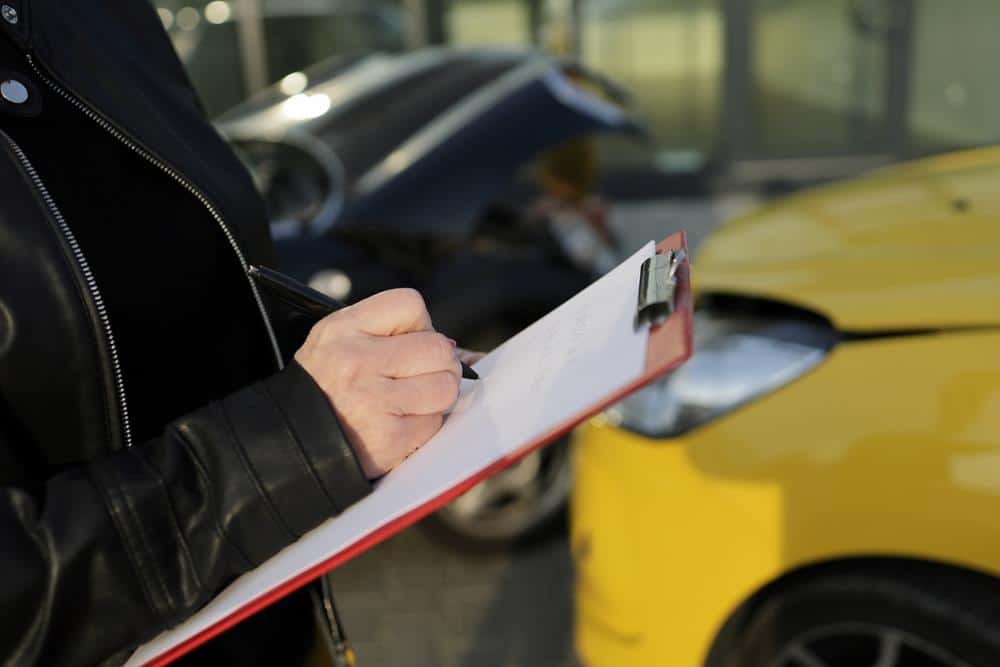The Importance of Filing a Police Report After a Car Accident in Maryland

Most people don’t think about police reports until they need one, and by then, it’s often too late. After a car accident in Maryland, what you do in those first moments can affect what happens for months or even years to come. Filing a police report is one of those important steps that’s easy to forget when you’re upset or confused.
In Maryland, reporting an accident is required by law. The importance of a police report after a car accident is that it protects everyone involved and can save you from major problems down the road. We’ll explore exactly how a police report strengthens your position in insurance claims and why skipping this step could cost you significantly.
What Does Maryland Law Say About Reporting Car Accidents?
According to Maryland Transportation Article § 20-107, if you’re in an accident where someone is hurt, you must tell the police right away. The same goes for accidents with deaths or property damage. If you don’t report such accidents, you’re actually breaking the law.
What you need to know is that in Baltimore, police will only come to the scene if someone is injured, needs medical help, or if a car needs to be towed. The problem is that if you don’t say you’re hurt, the police might not come at all. And without a police report, you’ll have a harder time filing any claims later.
That’s why it’s important to be honest about any pain when you call 911. Even if you think it’s just a small ache, admitting that you’re injured makes sure the police will come and file a report. Pain usually gets worse days after an accident, and what seemed minor at first can become serious.
How Police Reports Can Strengthen Your Accident or Injury Claim
When an officer documents a car accident, they create an official record that’s hard to argue with later. A police report carries several benefits.
Unbiased Documentation
The officer has no reason to favor either side. Therefore, the police report contains unbiased evidence that states the facts, providing a reliable account in the midst of the “he said, she said” arguments that often happen after accidents.
Proof of Your Presence
The importance of a police report after a car accident is that it confirms you were actually at the accident scene, making it much harder for insurance companies to claim the damage happened somewhere else or at a different time.
Important Relevant Evidence
Officers record the scene while everything is still fresh. They write down where cars were positioned, road conditions, weather, damage, and other details you might not be able to prove weeks later, like descriptions of the skid marks.
Documentation of Your Injuries
Police reports can help connect injuries that show up later to the accident. The rush of adrenaline right after a crash can mask pain, but the report documents the type of collision, which helps prove how your injuries relate to the accident.
Expert Assessment
Officers usually include their professional opinion about what happened and who was at fault. They may add details like estimated speeds and the driver’s state of being prior to the accident.
First Step to Recovery
Without a police report, many injury cases become a stalemate where each side blames the other, and insurance adjusters often deny these claims completely. In such situations, your case doesn’t make much progress.
The Risks of Not Filing a Police Report
When you don’t have a police report, you may run into several challenges.
Insurance Claims May Be Denied
Insurance companies are motivated not to pay you. Without an official report, they have an easier time questioning or denying your claim. They can say the damage happened at a different time or claim that the accident happened differently than you said.
Your Story Can Be Challenged
A police report ensures that what each driver says is recorded. Sometimes, the other driver admits fault at the scene, then later tells a different story when talking to their insurance company.
Legal Problems
There’s money on the line. Maryland follows contributory negligence rules, meaning if you’re found even 1% at fault for the accident, you could get nothing. A police report that clearly shows the other driver was at fault can be important.
No Third-Party Verification
Without official third-party verification of what happened, insurers might be slow to pay or could refuse completely since they have no way to confirm your version of events.
Delayed Case Processing
When you don’t have a police report, you’re likely to encounter delays in your case.
Policy Violations
Some insurance policies require a police report to be filed quickly after an accident. If you don’t file one, you might break your policy rules, giving the insurance company a reason to deny coverage completely.
Lost Criminal Case Options
Without a police report, you can’t pursue criminal charges if needed — like if the other driver was drunk or left the scene illegally.
What Is in the Police Report?
Usually, a Maryland accident report includes:
- Date, time, and exact location of the accident
- Names, addresses, phone numbers, and insurance information for all drivers
- Details about all vehicles involved, including license plate numbers and VINs
- Names and contact information for witnesses
- Statements from drivers, passengers, and witnesses
- Drawing of the accident scene and where the vehicles were
- Weather and road conditions
- Visible injuries noted at the scene
- Whether any of the drivers received tickets or broke the law
- The officer’s description of how the accident happened
- The officer’s initial assessment of who was at fault
The officer might also write down if anyone declined medical treatment at the scene, which can be important if injuries show up later.
Do I Need to Report a Minor Car Accident?
Many people are unsure of whether to report small fender benders. In Maryland, the answer is yes if there’s any injury or property damage.
The reality is that for very minor accidents with no injuries and little damage, police in busy areas like Baltimore might not come to the scene. That means you might need to file a report at the police station later.
However, your initial assessment of a minor accident might not be accurate. Some damage caused in such accidents isn’t visible right away but can affect how safe your car is in the days to come. At the same time, some injuries, especially whiplash, might not hurt until hours or days after the accident.
Therefore, if there’s any chance someone is hurt or if the damage is more than a few hundred dollars, reporting the accident is the safest choice.
Remember that even if police don’t come to the scene, you can still file a report at a police station, usually within 15 days of the accident. This creates an official record even if it’s not as detailed as a report made at the scene.
What if the Accident Was My Fault?
Many people avoid filing police reports because they think it might hurt them. Filing a police report is not the same as admitting fault. In fact, you should never say you were at fault, even if you think you were. Figuring out who’s at fault in an accident is complicated and involves many factors you might not know about at the scene.
The police report will include statements from everyone involved and any witnesses, along with the officer’s view of what happened. But this first determination isn’t final, and it can be changed if there’s evidence that shows something different.
Even if you think you were at fault, there might be things you don’t know. For instance, the other driver might have been speeding, texting, or breaking traffic laws in ways you couldn’t see. Other issues that could have led to the accident include bad road conditions, missing signs, or car problems.
When Should I File My Report?
Timing is important for police reports, so the sooner you file, the better. According to Maryland Transportation Article § 20-107, drivers involved in accidents that result in bodily injury or death must report the incident in writing to the Motor Vehicle Administration within 15 days after the accident.
When Police Reports Are Required
You must file a report when:
- The accident caused bodily injury or death
- The accident caused property damage
- No police officer investigated the scene and filed a report
If you’re hurt, getting medical help should be your priority. However, filing a police report should be next and ideally as soon as possible after the accident.
When Reports Are Not Required
A written accident report is not required if:
- The accident was already investigated by a police officer, and a report was filed with the Department of State Police
- You are physically unable to make the report
The law also requires drivers to provide evidence of liability insurance or other security within the same 15-day timeframe.
There are practical reasons to file quickly, including the fact that evidence disappears, memories fade, and witnesses become harder to find as time passes. A report filed right after the accident will contain the most accurate information.
Statute of Limitations for Legal Action
Maryland law gives you three years from the date of the accident to file a civil lawsuit. This three-year period, known as the statute of limitations, applies to most car accident claims seeking compensation for injuries or property damage.
Missing this deadline could prevent you from recovering any compensation at all, no matter how strong your case might be.
How Police Reports Help With Insurance Claims in Maryland
Maryland uses a fault-based insurance system, which means the person responsible for causing the car or truck accident is also responsible for covering the damages. The importance of a police report after a car accident in this process includes several factors.
Supporting Your PIP Claim
In Maryland, personal injury protection (PIP) coverage isn’t mandatory, but it’s highly recommended as it helps pay for your medical expenses regardless of who caused the accident. Having a police report helps confirm that your injuries came from the accident. This makes it easier to get your PIP benefits quickly.
Determining Fault
Insurance companies rely heavily on police reports when deciding who was at fault. The report includes the officer’s professional assessment of how the accident happened and usually indicates which driver violated traffic laws.
Dealing With Insurance Denials
The insurance company will likely try to deny your claim. A detailed police report might provide the evidence needed to challenge their decision. The report also records all vehicles involved in the accident in case there are disputes about which cars were actually involved in the crash.
Consult With Baltimore Car Accident Lawyer John Leppler Today!
If you’ve been in an accident in Maryland, John Leppler can help you through the confusing process that follows. As a Baltimore car accident lawyer, John knows how important police reports are in building strong cases for his clients.
Leppler Injury Law has lots of experience handling car accident cases throughout Maryland. John can help you understand what your police report means, spot its strengths and weaknesses, and build the strongest possible case based on the evidence you have.
If you didn’t file a police report or if there are problems with the report that was filed, John can help you look at your options. The sooner you contact him after an accident, the better he can help you. Contact Leppler Injury Law today for a free consultation about your car accident case.
